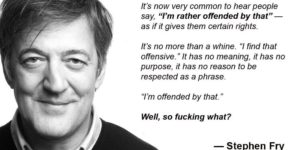March Madness is fully upon us. This season unites us all over a love for college basketball or in my case, a love for winning money by googling an article about who the “Cinderella” teams are and somehow winning your neighborhood pool (it’s only happened once). Whether your team is out (sorry Dad) or still fighting (Go Blue!), the close matches between teams can be super distracting to everyone. I know that I was watching a game in class the other day, and I don’t even like basketball that much!
It’s been found that March Madness may potentially cost employers $4 billion in productivity. It’s almost impossible to stay focused when there’s a #16 seed beating a #1 seed! (shoutout to the person running the UMBC twitter). One negative marker of Gen-Z is our ability to be easily distracted or our inability to pay attention to one thing for long periods of time. An average college student’s attention span is somewhere between 10-15 minutes, while most classes are over an hour. Although this isn’t an argument about our screwed up education system, it does open up a conversation about how to best approach the use of things such as cell phones and social media which can be very distracting.
I’ve had a cell phone since I was 10 when a family friend forgot to pick me up at swim practice. Some younger members of Gen-Z have gotten them even younger than me. We have grown up with these distractions around us at all times, and it can be difficult to manage.
I am a big fan of teachers that try to embrace the qualities of Gen-Z rather than fight it. More and more, I see teachers and professors trying to implement activities using cell phones or allowing laptops in class. Although I commend these teachers for trying to work with us, it isn’t working. Every single time I bring my laptop to class, I end up online shopping and missing some important information. The same can be said when cell phones or social media is involved.
Although it seems I’m advocating for an eradication of all cell phones and social media use during work hours, I’m not. Frankly, I don’t really know the rules of cell phones at most offices, but I know that my Dad is pretty quick to respond to my texts during the day. What I am saying is that a healthy encouragement of no cell phone use is a good idea.
I think that something like a station where you could drop off and charge your phone for a period of time could be really beneficial to boosting productivity. When I have to get work done, I’ll go put my phone across my apartment from me and turn it off completely to avoid distractions. Whoever says they are good at multi-tasking is LYING. Whenever my phone lights up, I want to check it and I know you do too.
I don’t have a solid answer for you on this one. It’s a tricky topic that isn’t black and white, but it is important to acknowledge. It is important to remind your Gen-Z employees that they are adults and cell phones aren’t banned like they are in a lot of schools. Also, it is important to remind them that this is a place of work and they are getting paid to do a job, not to sit on their phones and send Snapchats about how bored they are (that’s all that we are doing on Snapchat. I promise!). Let me know what you think in the comments!
This post was written by Cameron Sackett (not Tim) – you can probably tell because it lacks grammatical errors!
HR and TA Pros – have a question you would like to ask directly to a GenZ? Ask us in the comments and I’ll respond in an upcoming blog post right here on the project. Have some feedback for me? Again, please share in the comments and/or connect with me on LinkedIn.


